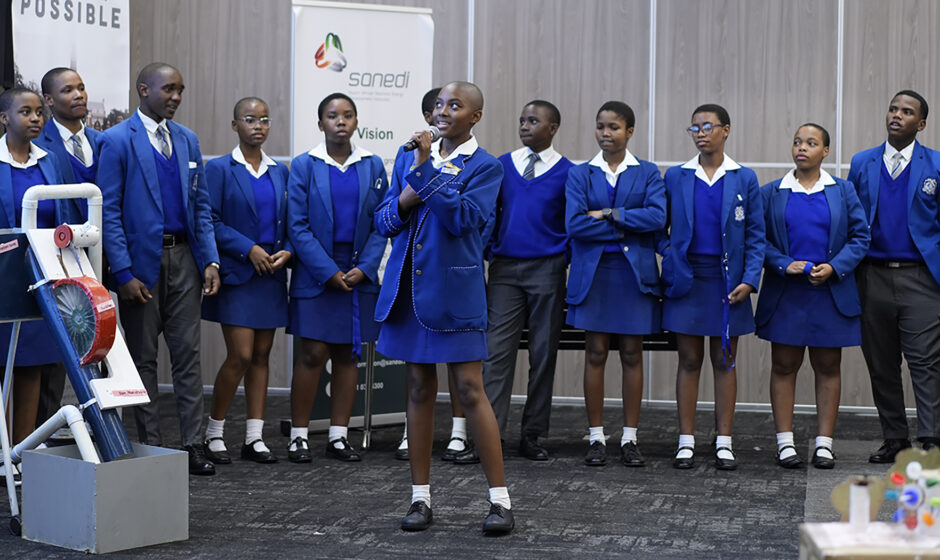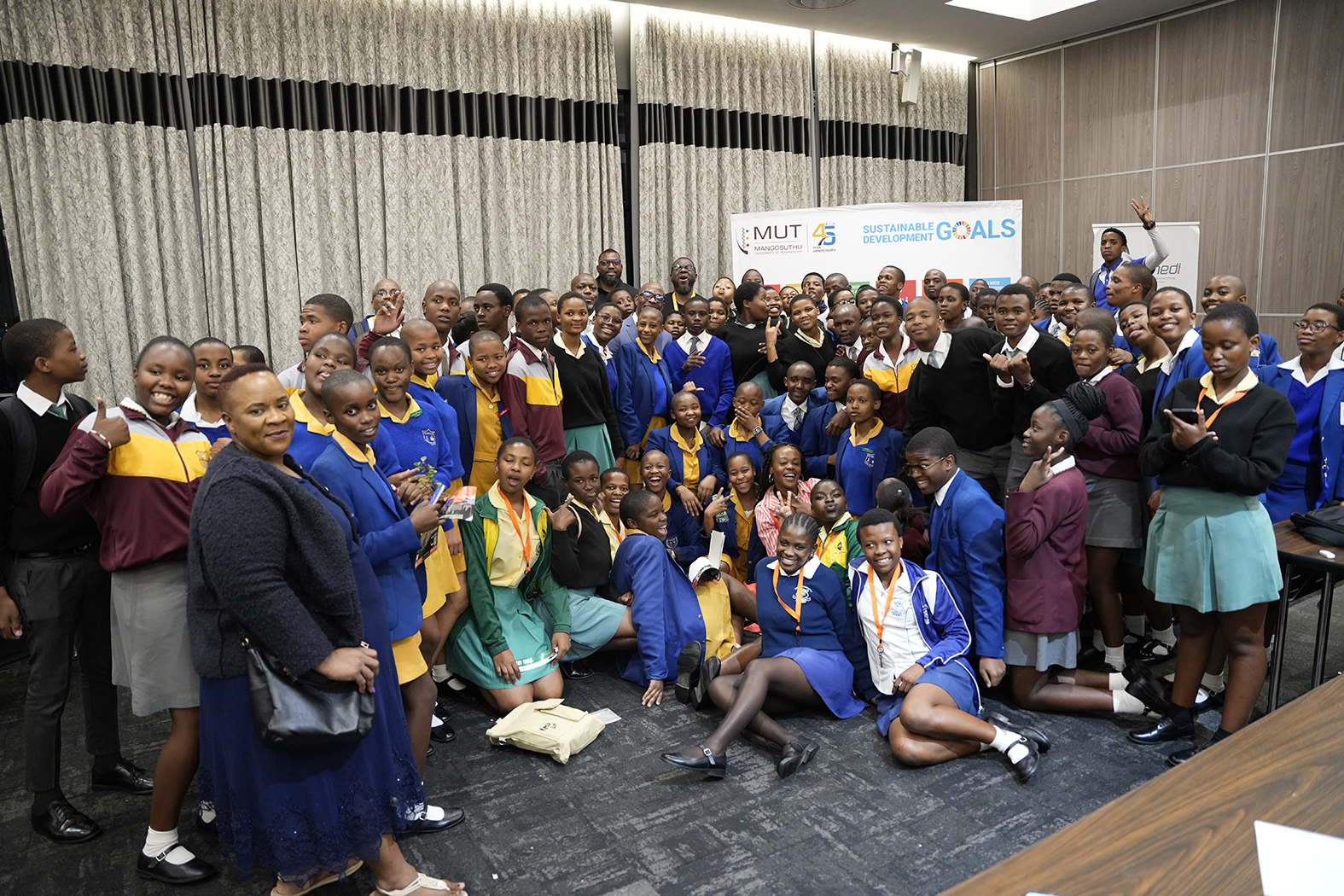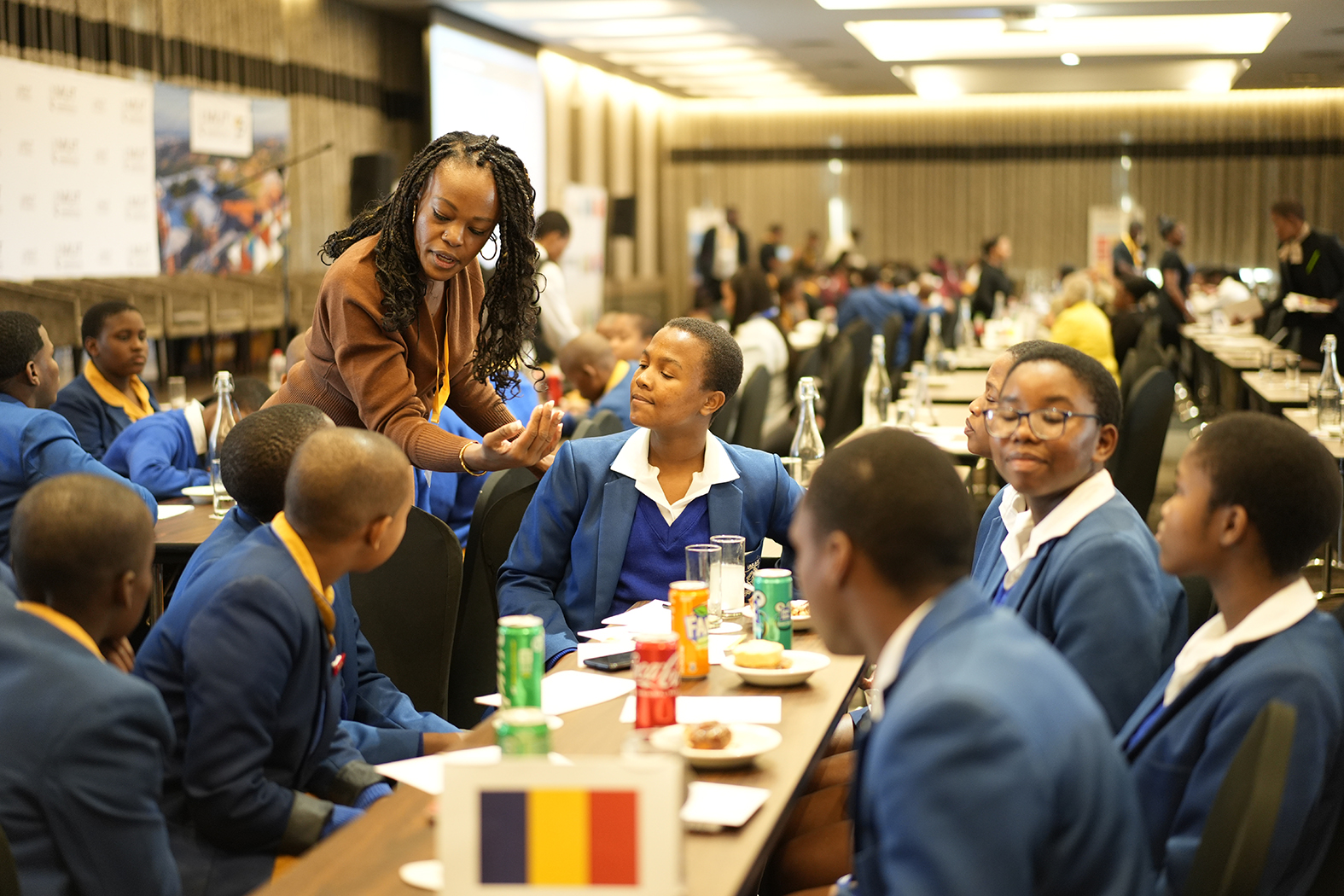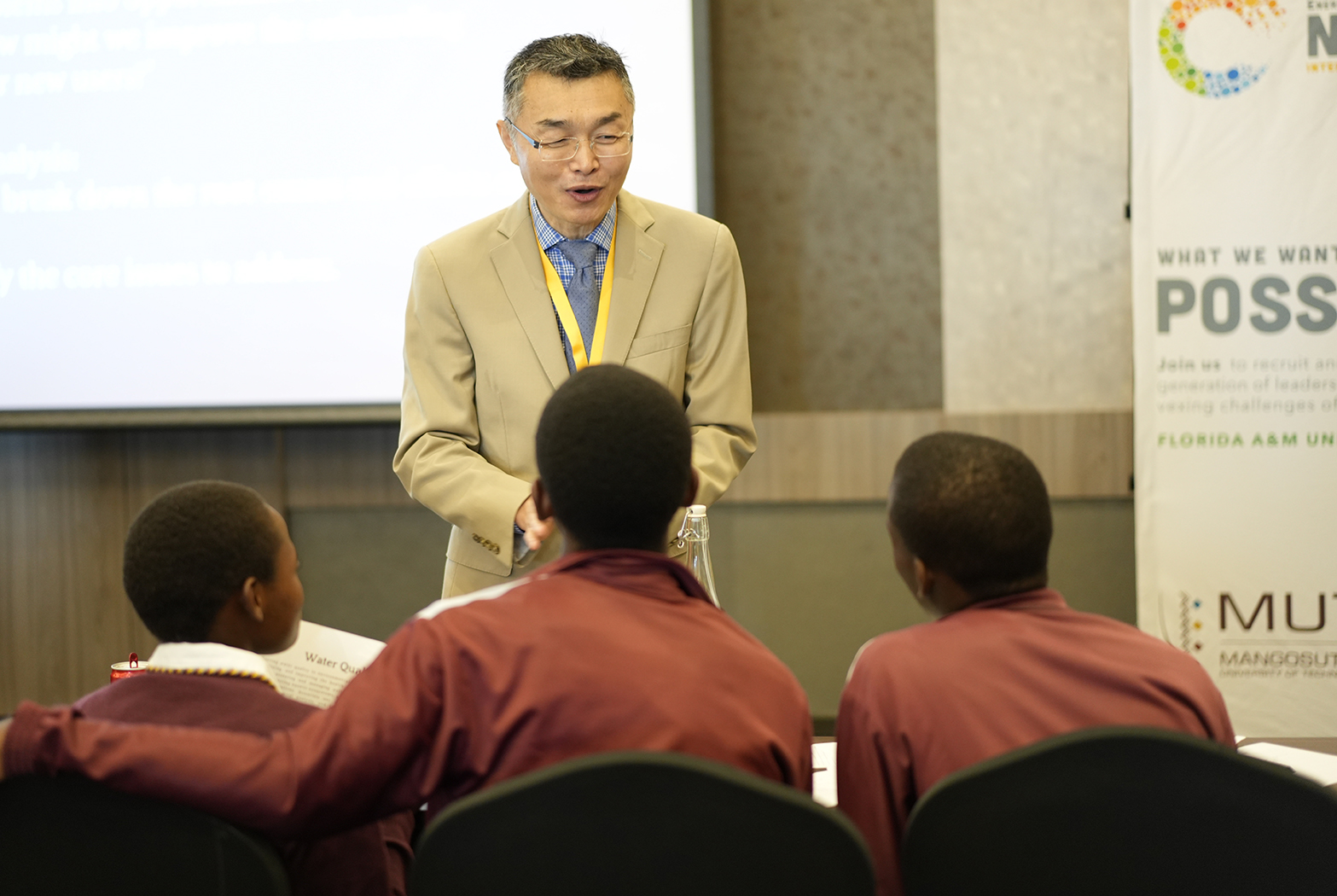Durban EnergyWaterFoodClimate Nexus Summit ‘Why Hack’ Highlights Innovation of South African High School Students

Durban, South Africa – One of the highlights of the 2024 EnergyFoodWaterClimate Nexus International Summit was a “Why Hack,” a shark tank style competition with more than 100 students representing six high schools from Durban and surrounding areas.
“The original goal for the “Why Hack” was about how can we bring young people and involve them in scientific exploration to find answers to the world’s greatest environmental challenges,” said Leslie Nwoke, Ph.D., moderator of the event. Secondly, “It was about how can we also give them tools that go beyond the scientific methodology.”
Student teams from Umlazi Comtech High School, Ndukwenhle High School, Velabahleke High School, Shumayela High School, Makhumbuza High School, and Ogwini Comprehensive High School competed in the event.

For two days, teams competed in designing prototypes. On the first day, students, all dressed in school uniforms despite it being winter school holidays, brainstormed solutions to the questions they tried to answer. The second day, they returned, some traveling more than 60 miles by bus, to finalize their presentations. Most teams built models of cardboard and other disposable material to demonstrate their projects. In the afternoon, they took turns presenting before a panel of judges.
“These young people were amazing. Using design thinking, they were able to build ideas for water quality; they built seawalls; they built ways to test water for diarrheal diseases; they built wheel and pulley systems that catch rainwater,” Nwoke said. “For the time they had, it was incredible what they were able to develop. Our slogan this year has been ‘What We Want is Possible.’ We wanted the kids to know what they build was also possible.”
Joel Blount, Jr., coordinator of Academic Programs for the Florida A&M University (FAMU) School of the Environment was impressed by the speed with which the students came up with their projects.

(Photos Credit: Ernest Nelfrard)
“As the lead recruiter for the School of the Environment, I could not be more impressed with the level of competitiveness that the students brought to the ‘Why Hack’ experience,” Blount said. “Many of the students speaking in their own language really impressed me as they were sharing ideas about the issues that impact their communities.”
Umlazi Comtech High School won first place—their project was on food security. Ndukwenhle High School took the second position, with their rainwater harvesting project. Comtech High School’s third-place team’s project was about a device that purified water and generated electricity at the same time.
When the judges announced the top three teams, the students erupted in cheers and dancing.

Gang Chen, Ph.D., a professor of Civil and Environmental Engineering in the FAMU-FSU College of Engineering, said serving as one of the judges of the competition “was awesome.”
“Being there to observe the 10th to 12th graders being exposed to engineering concepts and finding solutions for engineering problems within 48 hours is amazing,” said Chen, who collaborates with FAMU School of the Environment Dean Victor Ibeanusi, Ph.D., the founder and convener of the Nexus Summit, on several research projects.



